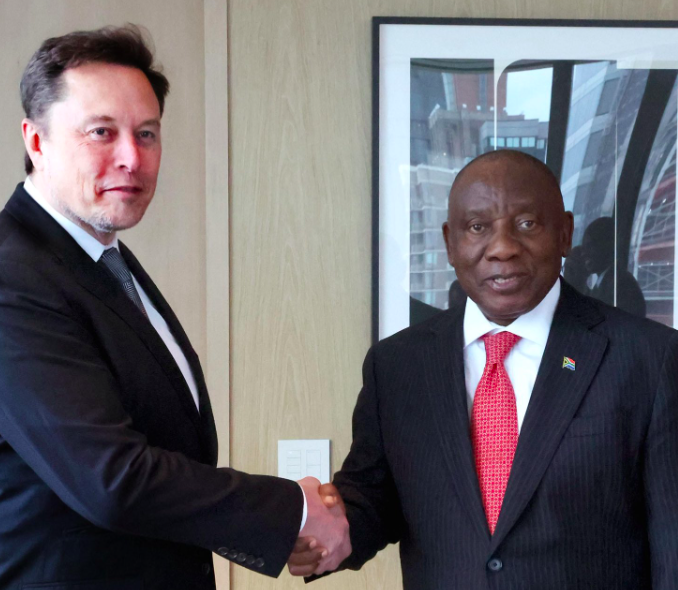Cape Town – President Cyril Ramaphosa spoke with Elon Musk about misinformation regarding South Africa, following US President Donald Trump’s claim that the country was confiscating land and mistreating certain groups.
This was said by the Presidency on Tuesday.
“Yesterday, 3 February 2025, President @CyrilRamaphosa spoke to @ElonMusk on issues of misinformation and distortions about South Africa.
“In the process, the President reiterated South Africa’s constitutionally embedded values of the respect for the rule of law, justice, fairness and equality,” the Presidency said in a post on X.
Yesterday, 3 February 2025, President @CyrilRamaphosa spoke to @ElonMusk on issues of misinformation and distortions about South Africa.
In the process, the President reiterated South Africa’s constitutionally embedded values of the respect for the rule of law, justice,… pic.twitter.com/P5CX9ggTYH
— The Presidency 🇿🇦 (@PresidencyZA) February 4, 2025
“South Africa is a constitutional democracy that is deeply rooted in the rule of law, justice, and equality. The South African government has not confiscated any land,” Ramaphosa said.
Musk, who is close to Trump, had also accused South Africa of having “openly racist ownership laws”.
Why do you have openly racist ownership laws? https://t.co/tHWVsmB04F
— Elon Musk (@elonmusk) February 3, 2025
Ramaphosa recently signed a law permitting land expropriation without compensation in specific cases, aiming to address long-standing inequalities in land ownership.
Most private farmland in South Africa remains in white hands, a legacy of colonial-era policies and apartheid-era forced removals.
The new law allows expropriation if land is unused, poses a risk, or is in the public interest.
Trump criticised the policy, accusing South Africa of land confiscation and threatening to cut aid until an investigation is conducted.
Land reform has been a contentious issue since the 1913 Natives Land Act, which restricted black land ownership, BBC reported.
“In 2017, a government report said that of the farmland that was in the hands of private individuals, 72% was white-owned. According to the 2022 census white people make up 7.3% of the population,” the report said.
Post-apartheid efforts relied on a “willing seller, willing buyer” model, which some argue slowed progress.
Critics of the new law worry it could harm the economy, drawing comparisons to Zimbabwe’s land seizures.
Follow African Insider on Facebook, Twitter and Instagram
Picture: X/@PresidencyZA
For more African news, visit Africaninsider.com
Compiled by Betha Madhomu


